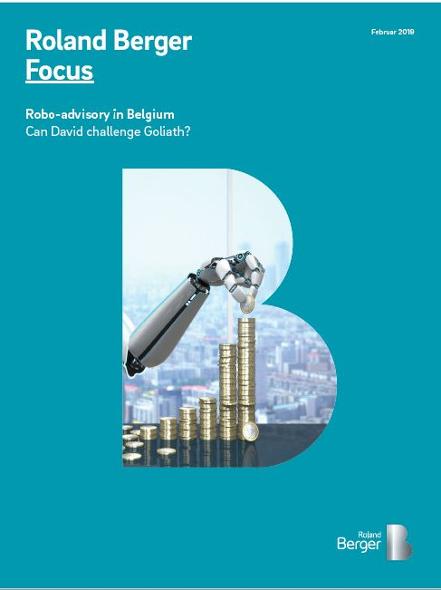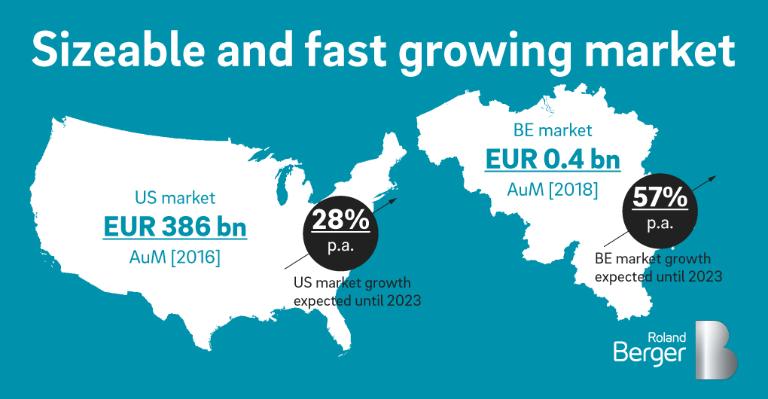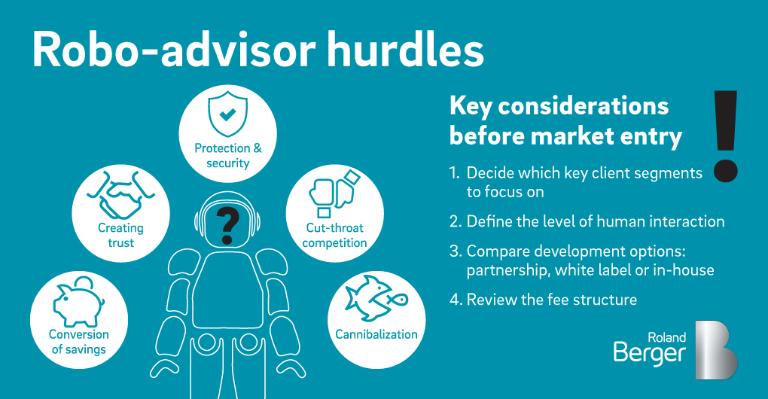Robo-advisors in Belgium - Can David challenge Goliath?
![{[downloads[language].preview]}](https://www.rolandberger.com/publications/publication_image/Capture1_download_preview.jpg)


Robo-advisory is a currently still small but fast-growing and potentially disruptive innovation in Asset & Wealth Management. Today, 10 years after its establishment, the global market amounts to nearly EUR 500 bn assets under management (AuM). While this represents less than 1% of the worldwide AuM, the global market is expected to grow at a staggering 36% p.a. for the next 5 years.
Most Tier-1 banks in Belgium have added or are at least investigating the possibility to add robo-advice to their product offer, as they see the potential it has to disrupt part of their current business. Moreover, they realize that being an early mover in the market makes it easier to achieve significant scale, which is key to make the economics work for a robo-advisor. Furthermore, for non-traditional financial services players such as tech companies & data management specialists, robo-advisory can be a way to enter into the asset & wealth management industry.
Despite the growing market and the attention from market participants, we see that standalone robo-advisors are struggling to be profitable. They face various challenges, such as creating trust despite their online nature and lack of track record. Furthermore, they need to ensure sufficient data protection & digital security. Also, robo-advisory is a highly competitive market with a lot of pressure on fees and high customer acquisition costs. For more traditional asset & wealth managers it might be easier to create trust, still they face the risk of cannibalizing their existing business.
Therefore, it is key for robo-advisors to create scale and find the optimal client segment, level of human interaction, development model and fee structure.

![{[downloads[language].preview]}](https://www.rolandberger.com/publications/publication_image/Capture1_download_preview.jpg)

